🌍 Frontier Markets News, June 14th 2025
A weekly review of key news from global growth markets

Africa
China promises tariff-free trade for majority of African countries
Beijing this week said it will scrap tariffs on African countries that have diplomatic ties with China, Bloomberg reports. President Xi Jinping declared that the countries would receive “zero-tariff treatment for 100%” of products exported to China. Eswatini is the only African nation not exempted from tariffs, as it recognizes Taiwan as independent.
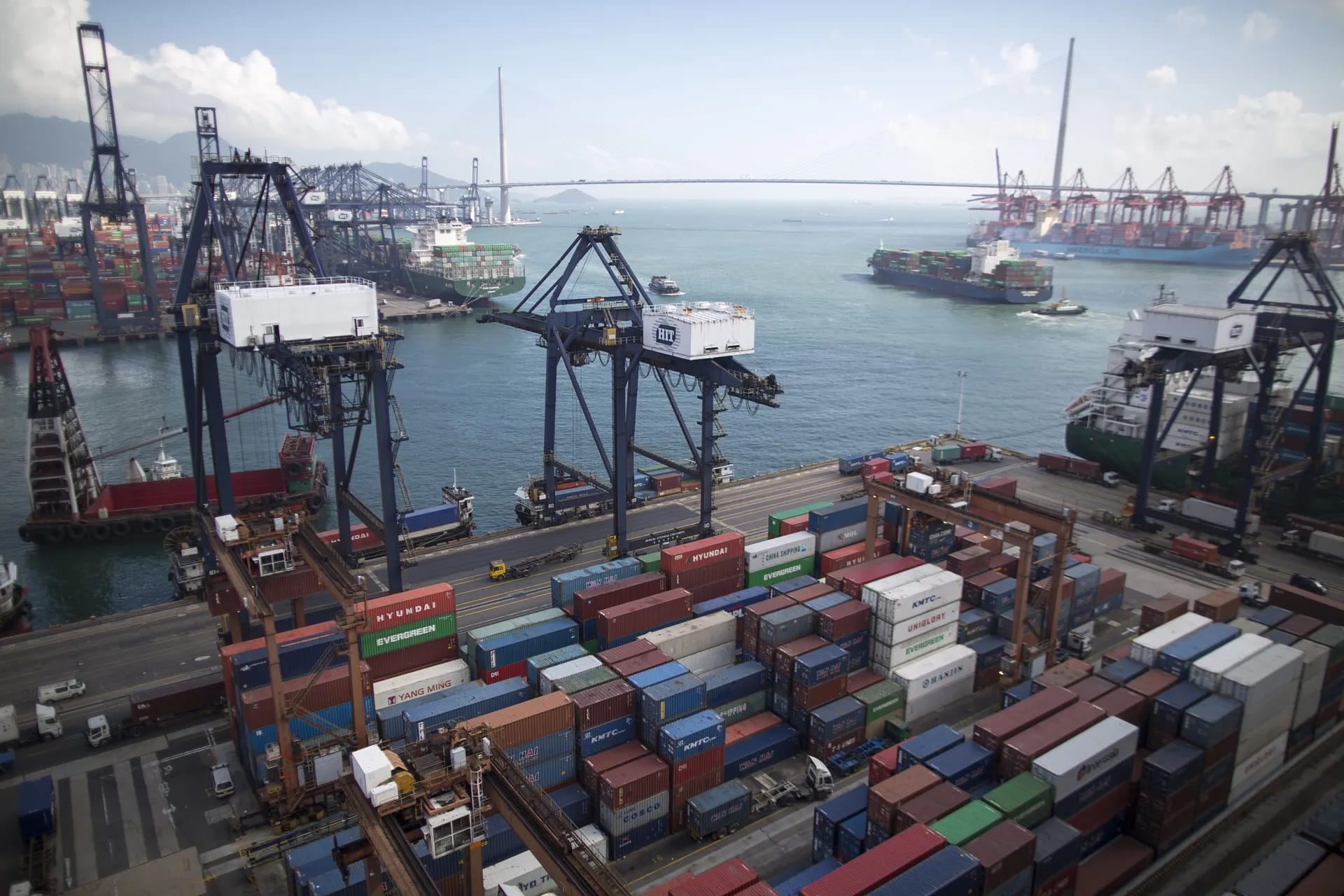
The zero-tariff plan builds on a move last year to drop tariffs on goods from countries whose economies are considered “least developed.” Among those countries were 33 African nations.
- China’s engagement in Africa sees more security agreements than ever before (Africa Center for Strategic Studies)
Scrapping tariffs could provide a significant boost for exports from Africa. China is the continent’s largest trading partner, importing around $170 billion of goods from Africa in 2023. The initiative aligns with Beijing’s plan to boost African imports in the midst of its own economic slump.
Africa to launch new credit rating agency on heels of Fitch fallout
Africa will have its own credit-rating body by the end of this year, Semafor reports. The African Credit Rating Agency—AfCRA—will provide an alternative to the so-called Big Three ratings agencies—Moody’s, S&P and Fitch. The new body will aim to counter perceived biases, inaccuracies, and high costs associated with Western institutions’ ratings of African countries.
According to Misheck Mutize, a credit ratings expert at the African Union, AfCRA’s CEO will be appointed in Q3 and will be based on the continent. The global ratings firms are all headquartered in New York.

The launch announcement comes after Fitch downgraded the African Export Import Bank last week, dropping it to BBB-, one step above a “speculative” grade. Fitch cited high credit risks and weak risk management in its decision, which the Afreximbank called “erroneous“ and an African Union credit review body called “flawed.”
Fitch said that the bank was at risk of incurring losses on roughly $2 billion in loans to Ghana, Malawi, South Sudan and Zambia if it was not treated as a preferred creditor. Countries including Ghana and Zambia, however, have publicly condemned multiple downgrades, saying that they contributed to rising borrowing costs and eventual defaults.
Zambia’s growth accelerates
The Zambian economy is expected to expand by at least 6% this year, its strongest performance since 2021, Business Insider Africa reports.
The southern African nation has just emerged from a protracted debt restructuring process, which has boosted returns for creditors and bondholders. It also comes as Zambia, Africa’s second-largest copper producer, has ramped up metal production, which accounts for 70% of export revenue. Zambia hopes to boost its copper output from last year’s 900,000 tons to about 1 million tons.
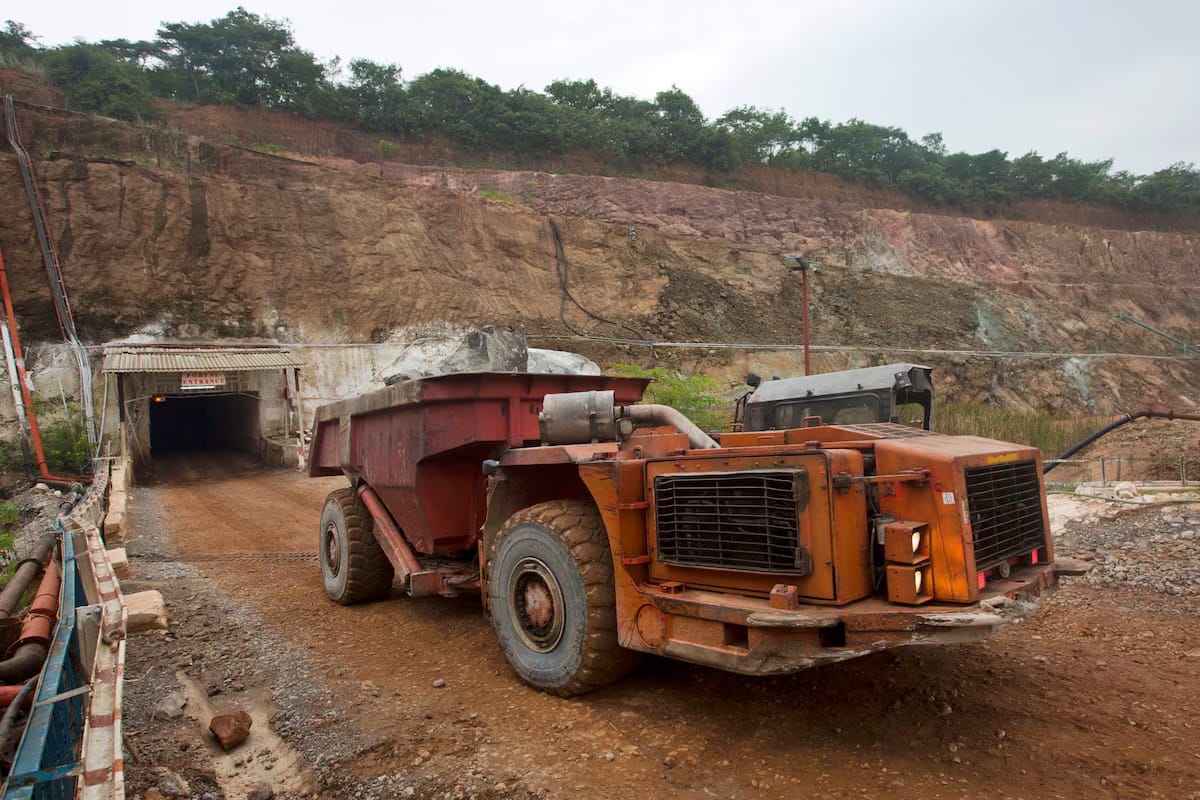
The country’s currency, the kwacha, has become Africa’s second-best performing against the US dollar this year, helped by easing inflation—principally food prices such as bread and cereals, after much-needed rainfall assuaged the country’s severe drought.
Asia
Bangladesh leader flags possible February election
Bangladesh’s interim leader Muhammad Yunus this week said he would consider holding national elections in February, two months earlier than his original pledge, US News reports. Yunus, who returned to lead the country last August after protesters ousted former prime minister Sheikh Hasina, has been facing increasing pressure to commit to an election that would put an end to his leadership.
The public has soured on Yunus in recent weeks, with protests erupting about his planned decision to fire some government workers.
- UK crime agency freezes assets of former PM Hasina’s ally (Al Jazeera)
Visiting London this week, Yunus was met by a new set of protesters, many of whom are affiliated with Hasina’s former party. Yunus has been pushing the UK to track down funds that he says were siphoned from Bangladesh to Britain during Hasina’s tenure. British Prime Minister Keir Starmer declined to meet Yunus this week, the FT reports.
Chinese tourism to Thailand sinks by a third
Thailand is planning to roll out a stimulus package to counter a sharp fall in tourism from China, Nikkei reports. Chinese arrivals to Thailand between January and May fell by 33% from the same period last year, the country’s tourism and sports ministry said.

The stimulus measures, aimed at boosting international tourism, include 750 million baht ($23 million) in subsidies for international flights. Almost half of the money will go to flights from China.
Tourism accounts for 12% of Thailand’s GDP, Thai Central Bank Governor Sethaput Suthiwartnarueput said last year, and China sends more tourists than any other country. But while the drop-off in arrivals from China is significant, tourism overall fell by just 3%, supported by an uptick in arrivals from the US and Europe.
Indonesia, Thailand and Malaysia prepare subsidies as tariff deadline nears
Southeast Asian exporters are readying billions of dollars’ worth of subsidies in preparation for the potential return of high US tariffs.
On Tuesday, Indonesia’s President Prabowo Subianto put together a $1.5 billion stimulus package that will provide cash and rice handouts to citizens on low incomes and slash costs of public transportation, Nikkei reports.
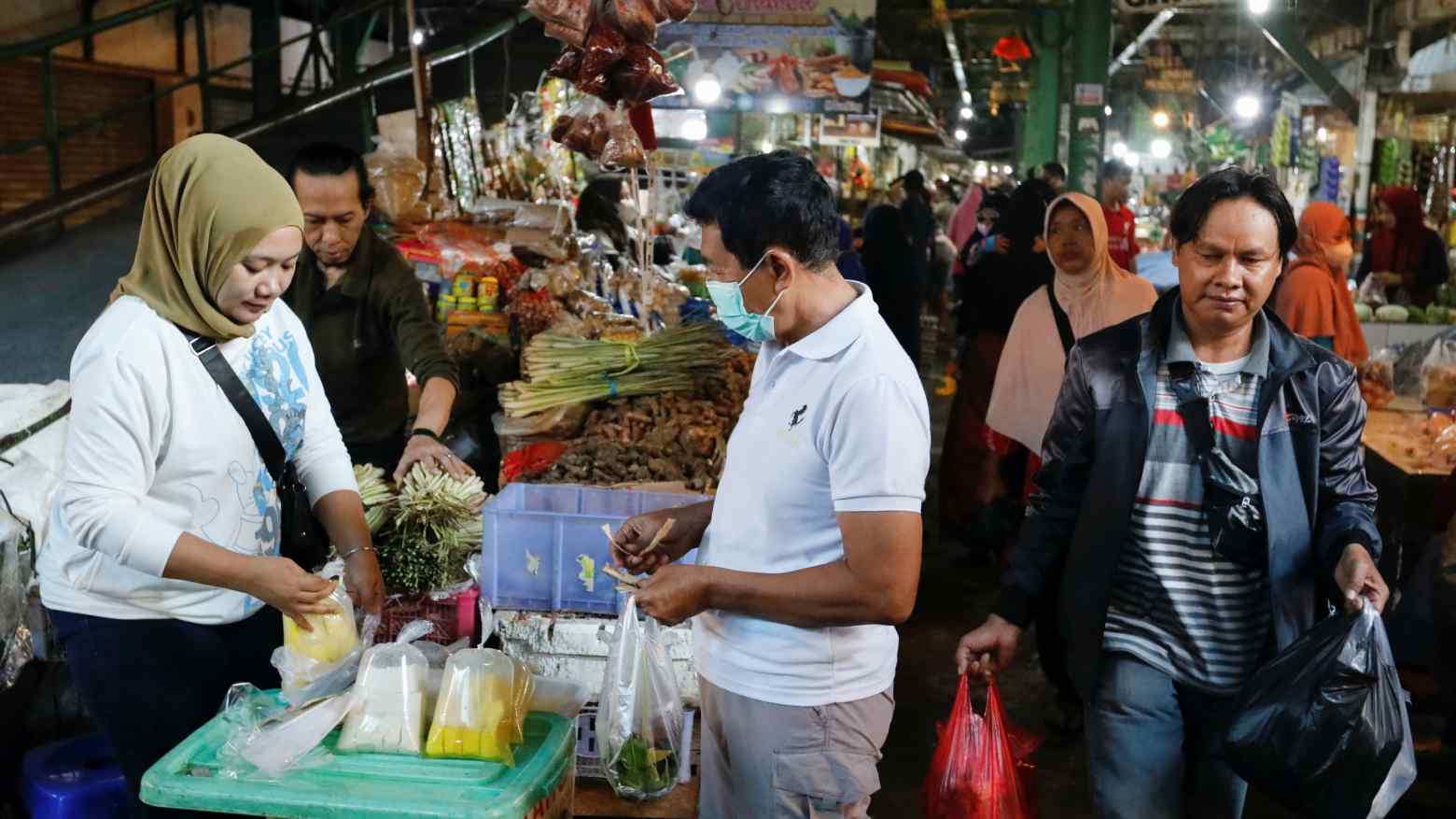
Thailand has readied its own $4.8 billion package to develop tourism and transportation infrastructure, while Malaysia is preparing to provide $354 million in low-interest and government-guaranteed loans for small and midsize businesses. Vietnam has previously said it’s considering extending a value-added tax cut to the end of next year.
Middle East
Jordan looks to LPG for economic boost
Jordan moved this week to stabilize its energy supply with a $21 million deal to develop new liquid petroleum gas storage facilities in its southern port of Aqaba, Zawya reports. The facility will initially have a capacity of 4,000 metric tonnes and include transport infrastructure to meet growing domestic demand.
Jordan views LPG as an important component of its energy and economic security strategy. In a recent report, state think tank the Jordan Strategy Forum said new discoveries in the Risha gas field presented “a strategic opportunity to redirect Jordan’s economic path toward structural reform that supports progress and prosperity.”
The report lays out a plan to increase production capacity from the current 62 million cubic feet per day to 418 million by 2030. Currently, Jordan is dependent on hydrocarbon imports to meet its energy needs, purchasing some 3.1 million tonnes of oil annually, and is locked in to purchase agreements through 2034.
Sanctions relief helping Syria reintegrate into global economy
Syria’s central bank says it is to be fully reconnected to the SWIFT international payment system in a matter of weeks, opening the door to reintegration with the global financial system, the FT reports. Returning to SWIFT will facilitate foreign trade, which is key to rebuilding the currency reserves needed to stabilize Syria’s financial sector and restore domestic banking.
- Crypto exchange Binance opens trading to Syrians (Reuters)
- Lebanon to offer Syrians cash incentives to repatriate (New Arab)
Under the Assad regime, trade was centralized through the government, which imposed capital controls and steep taxes on foreign currency earnings. Syria’s new finance ministry is reportedly working on reforms to allow decentralized banking and deregulated private financial activity.
Europe
Barings fund benefits from keeping faith with emerging Europe
Nervousness around US growth prospects and an expected surge in defense spending have helped Barings’ Eastern Europe fund outperform its EM peers this year, Bloomberg reports. The $700 million fund has grown 24% in dollar terms—more than double the gain of the main EM index.
Fund co-manager Adnan El-Araby attributes the outperformance to capital outflows from the US and strategic positions in Poland, Greece and Hungary, which have become top global performers. The $442 billion firm’s fund has benefited from focusing on smaller companies after Russia’s 2022 ejection from equity indices forced a painful portfolio reconstruction.
Unlike peers who scaled back Eastern European exposure after the Ukraine invasion, Barings maintained conviction in the region and added off-benchmark names such as Polish parcel operator InPost, which has rallied 54% since joining European indices in June 2023. However, El-Araby warns that Eastern European markets will prove tougher to navigate going forward due to higher valuations, continued conflict in Ukraine, and growing political risks in the region.
Latin America
Violence escalates across Colombia
Simmering violence exploded into chaos this week in Colombia after the attempted assassination of presidential candidate Miguel Uribe, the Guardian reports. A wave of 24 bombings across southwestern Colombia following Saturday’s shooting killed at least seven people, while territorial wars between rival guerrilla factions have displaced over 65,000 people since January, Bloomberg reports.
The violence threatens to derail next May’s presidential election as illegal armed groups exploit President Gustavo Petro’s failed “total peace” negotiations. Forty percent of Colombians now rank insecurity as the nation’s biggest problem, while 15% plan to cast blank ballots to demonstrate their disapproval of all candidates.
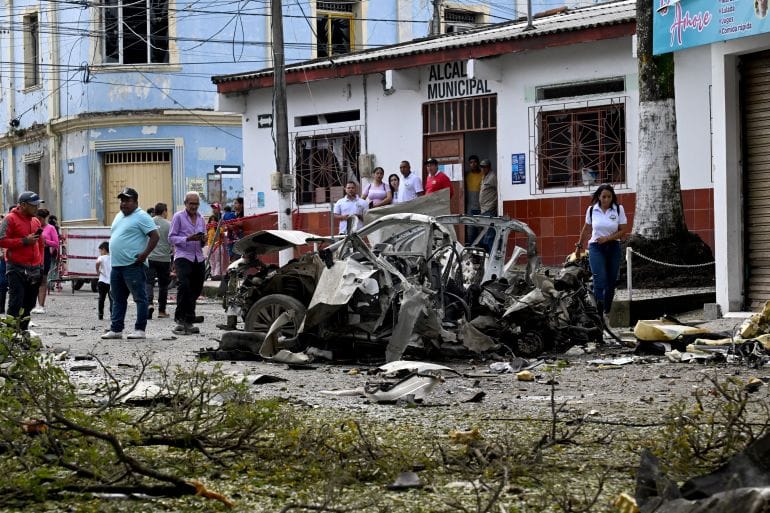
Despite the surge of violence, President Gustavo Petro signed a decree for a labor-rights referendum this week, prompting rallies of support, MSN reports. The poll will take voters’ temperature on a range of measures aimed at improving working conditions for Colombians.
Argentina inflation drops to five-year low
Argentina’s monthly inflation slowed to just 1.5% in May, the lowest rate since pandemic lockdowns in 2020 and well below the 2.0% analysts forecast, Reuters reports. Annual inflation fell to 43.5% from 47.3% the previous month.
- Kirchner to be banned from politics after graft conviction upheld (FT)
The data is another boost to President Javier Milei, whose libertarian economic agenda has won investor confidence and IMF backing for a $20 billion loan package.
Despite recent progress, Argentina still has one of the world’s highest inflation rates, but central bank analysts project annual inflation will drop to 28.6% by year-end.
Protests grow over Bolivia’s economic crisis
Bolivia is facing its worst economic crisis since 1991 as shortages of fuel, cooking oil, and basic goods intensify, Bloomberg reports. Protests prompted by the economic turmoil and frustration around the upcoming presidential election killed at least four people, including three police officers this week. Supporters of former president Evo Morales, who has been banned from contesting the election, blocked highways and clashed with security forces.
The crisis has been caused largely by a slump in gas production on the back of underinvestment. With reduced exports, the country’s currency reserves have collapsed and inflation has surged, pushing President Luis Arce’s approval rating to 7.4%. Natural gas production has shrunk from 60 million cubic meters daily in 2014 to just 28 million.
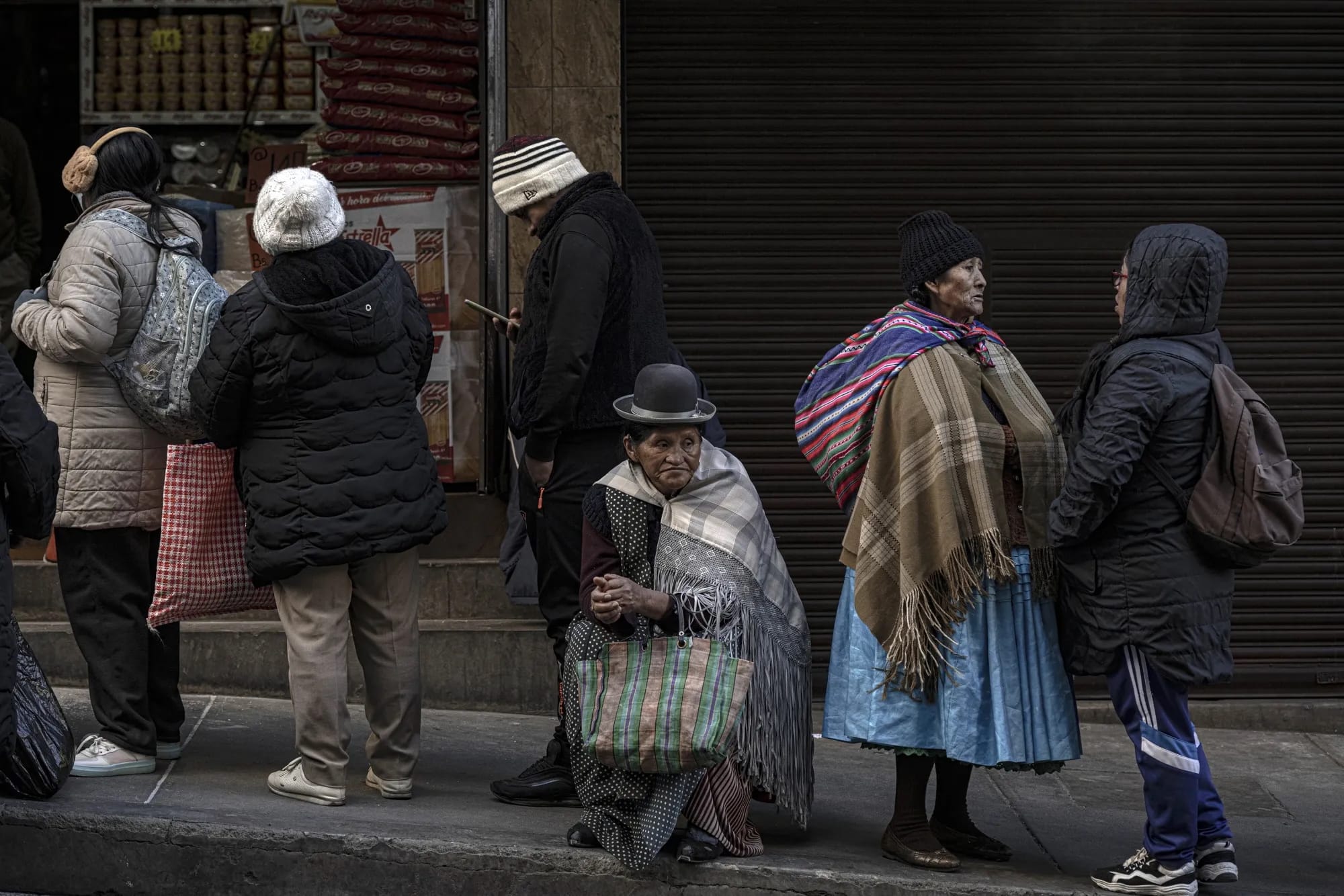
Hospitals face critical shortages of medical supplies while manufacturers are having to shut down, with some reportedly considering moving to Argentina to access dollars. The pharmaceutical industry reports the government has fulfilled less than 10% of dollar needs for imports, forcing companies to buy currency on black markets at premium rates.
What We’re Reading
Rwanda to withdraw from regional economic bloc after leadership snub (Reuters)
Zimbabwe, Africa’s largest lithium producer, to ban concentrates export from 2027 (Reuters)
Saudi $5bn loan to Nigeria hangs in the balance after crude prices plunge (Oilprice.com)
Logistics giant DHL to target investment in healthcare in Africa and Middle East (Bloomberg)
Pakistan crypto boss extends partnership campaign (Cointelegraph)
Vietnam launches pilot emissions trading program (Reuters)
Cambodia’s US exports soar ahead of huge expected tariffs (Bloomberg)
Thailand-Cambodia border dispute raises supply chain concerns around $5.4bn in bilateral trade (Nikkei)
Saudi Arabia regains oil market share in wake of production increases (WSJ)
Kuwait’s UREC to build island tourism complex in Oman (AGBI)
Uzbekistan strengthens ties with Slovakia and Bulgaria during Fico and Radev visits (Euro News)
Slovak PM threatens to veto sanctions against Russia over energy concerns (The Kyiv Independant)
Tusk’s government survives vote of confidence in Poland (AP)
Ukrainian refugees ‘give Poland big economic boost’ (Reuters)
Ecuador reaches agreement with IMF on $1bn loan increase (Reuters)
Ecuador national assembly passes gang-fighting reforms (Reuters)
Rise of ultra conservative puts Chile’s stock rally to the test (Bloomberg)
We are committed to providing FMN readers with a free weekly digest of politically unbiased, succinct and clear news and information from frontier and small emerging markets.
Please consider becoming a paid supporter to help cover some of our costs and support our continued development of sharp markets-focused coverage and new informational products. Paid subscribers will also gain exclusive access to our quarterly EM/FM report that aggregates EM insights from 25 major banks, international institutions and consultancies.





